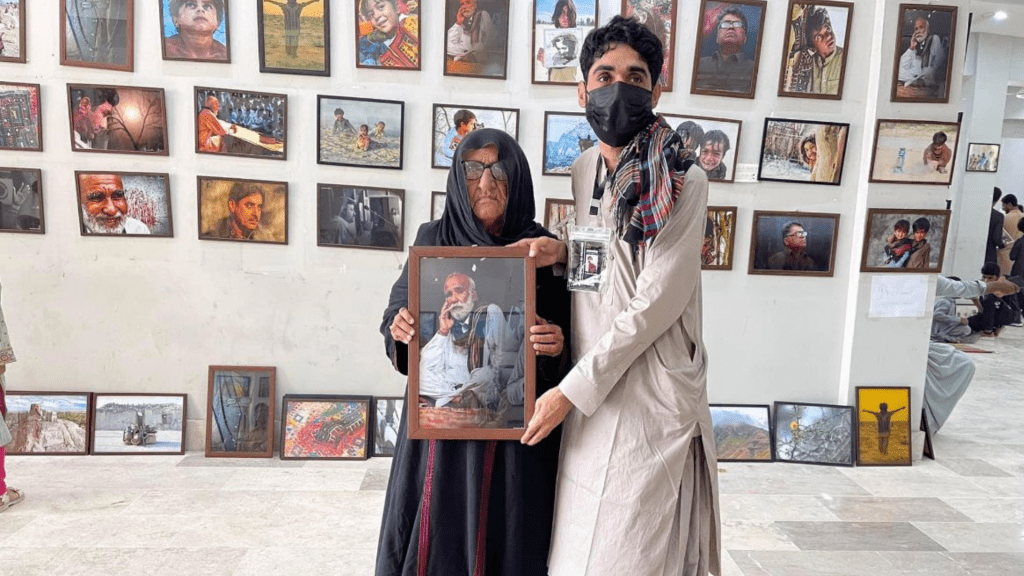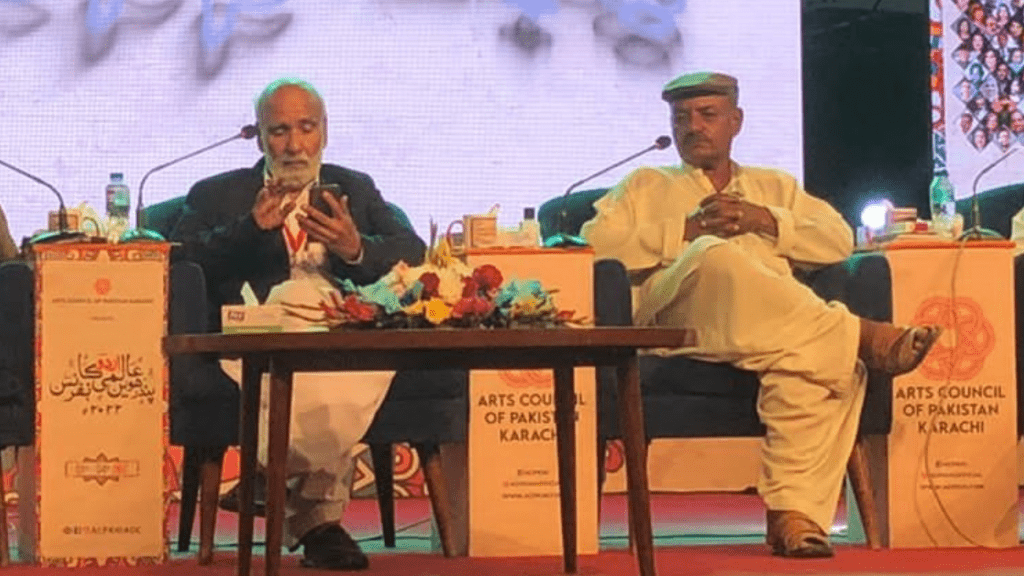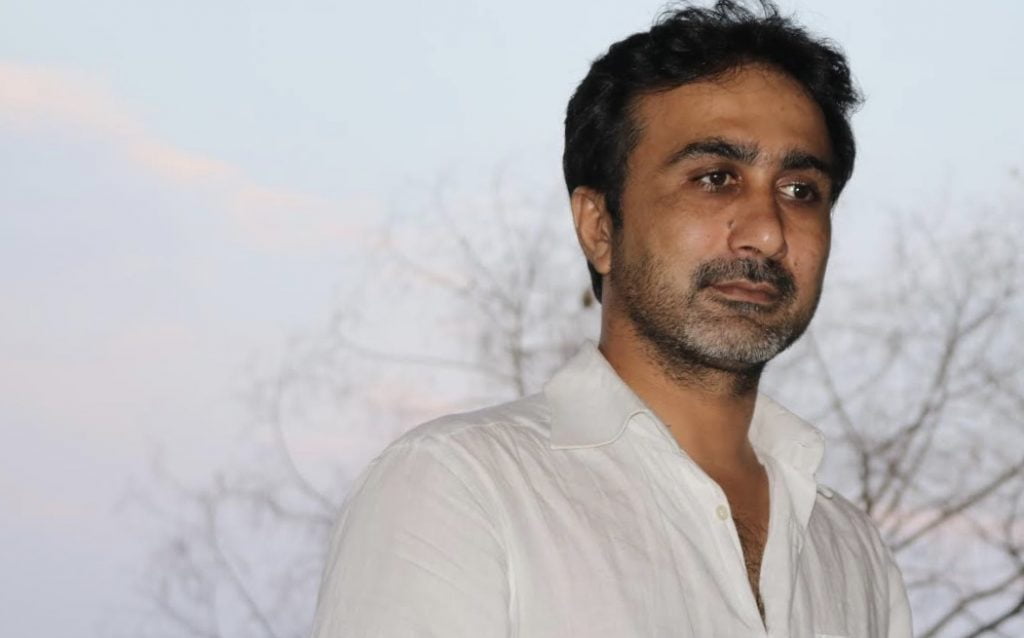In memory of Sajid Hussain
I remember well the first time you came to my office. It must have been in the early autumn of 2017. You were a bit shy. Taj did most of the talking. Would I be OK with you applying for political asylum in Sweden? “Yes, of course, it is your right to have your case tried.” And the last time, things were quite different. You had a totally different self-confidence. It was on February 28, 2020. We had a Balochi class. You were a bit early. “How did your Swedish test go?” “Fine, I finished early.” We had time for a coffee before the class. And your Balochi examination that you got back that day was flawless, of course, as usual. You were on top of things, even vocative, relative clauses, impersonal constructions, subjunctive, optative. You had started to get a really good grasp of grammar. You were full of plans; the MA paper on argumentative discourse in political and religious speeches, and hopefully then a Ph.D. under my supervision. And you liked hanging out with your classfellow Sebastian. You even had plans to meet him the next weekend, speak Balochi and Swedish, help each other out. Sebastian was waiting for your confirmation, but it never came. He was shocked when he found out that you were missing. So were we all. We couldn’t make sense of it.
What happened, my son?
In the beginning, you were worried that Tahir did not want to speak to you on the phone. “She seems to be upset with me. She thinks I have forgotten her.” So when my son-in-law Alejandro once came to have a cup of coffee at the university and you found out that he has four children himself and is also working with young people, you asked him what you could do about it. “Don’t worry, it is a phase, she will come over it.” And she did. Now that she was sure that you were bringing her, and the rest of the family, to Sweden, she was so happy. She not only spoke to you, she told the great news to all her friends. “I am going to Sweden, to my daddy.”
But where are you now, my son?
You told me that I MUST write a Balochi grammar book to be used by Baloch writers as a reference book. “Sure, but it is a lot of work, where shall I fit it in?” “I will help you to the best of my capacity.” And if it had not been for your help it would never have happened. “How far have you got? Are you through with the draft? When do you want us to check some examples?” And you lived to see the book in print. I am really happy about that. One thousand copies to be distributed. Huge job, you helped me out with this too.
But where are you now, my son?
We read Dr Naguman’s story The Birdtrap together. You helped me understand difficult words and expressions. I think we even figured out most of the birds; doves, sparrows, tits and all the rest. This story really clicked with me. I think it will remain my favourite story forever. In my world, what The Birdtrap would have needed when it was hanging there up in the tree and could not forgive itself was exactly what I experienced already as a young girl; the forgiving power of the cross where Jesus died for my sins, and for the sin of The Birdtrap, who could not forgive itself for catching that one bird, and for those of us who accept His sacrifice. We talked about it. “I am not so much of a religious person.” “God’s love is far beyond religion,” I replied. When I read your story Facing exile, facing taunts I get the feeling that you were struggling with guilt as well. You write that people’s taunting and reproach are killing you. You cannot even upload a photo on Facebook out of fear. And in one place you write: “The brave lion cubs ran to the mountains and the coward ones, like us, ran abroad.” You are not a coward, you have been very brave. You have done a lot for your people. You have been a voice for them in the international arena. You have shown them that education is important. You have helped so many of your brothers and sisters achieve their goals. Many of your friends have testified to that. You were always generous with your time. You have also left a legacy by using your own beloved Balochi language in writing. Any such effort strengthens the chance that your people will be able to retain and develop their language. But you left us far too early. Who will fill your empty place?
What happened, my son?
You spent the whole summer of 2018 together with Dr Mousa Mahmoudzahi on the Balochi-English online dictionary. It is a really useful tool, and we had plans to develop it into some 15,000 entries and publish it in the autumn. Did I put too much pressure on you; MA-paper, dictionary work, other translation work? You were so capable, but I have heard that women are better at multi-tasking than men. I don’t know if it is true, but maybe. It seems I thought you could do a hundred things at the same time. I know you were working constantly, you did not allow yourself any breaks, apart maybe from one or two short journeys. But it seems you didn’t like Budapest. You may have liked Prague better. At least the Kafka museum. But you never got a chance to see Prague.
What happened, my son?
You liked my gooseberry cakes. They taste rather sour, but you liked them. And we had a lot of gooseberries to make cakes of. “Your cakes will make me gain weight.” But no, you did not let that happen. I have now learnt to bake a new kind of cake that Roubik likes very much. I think you would have liked them as well. I found the recipe too late, alas. When I make them for the rest of our team, I will think of you. But how can I get them to you?
Where are you now, my son?
You were such a gifted teacher. I took the chance to see you in action when you taught Balochi classes now and then. I tried to keep in the background. And it seemed you did not feel intimidated by my presence either. “Change the sentences from the past to the present tense. Don’t forget that there are more things you have to change than just the verb. Think of the subject and the direct object, and don’t forget the a.” This was a bit hard even for you at first, it is not there in your dialect, but you caught on quickly. The students also seemed to get the hang of it. And I had hoped that you would teach Balochi for years and years to come.
But what happened, my son?
You did a lot of translation work, and I think you enjoyed it. At least I hope you did. It very soon became clear to me that your English was far better than mine, at least when it came to vocabulary. Pronunciation was a slightly different story. Some sounds were not made for your mouth, neither in English nor in Swedish. But your translations were flawless and we relied very much on you when we had to produce oral or written translations into English of our Balochi texts. And you wanted to translate the book of Ecclesiastes into Balochi. Don’t worry, Taj will do it and we will dedicate the book to your memory. We will also dedicate another book to you, a collection of Balochi short stories. Your own story Facing exile, facing taunts will be included, if Mr. Glass and Mr. Irannezhad give their consent. Where shall we send your copy? Taj’s and Mehlab’s books have also been published, finally. Do you want a copy of these books too? Drop me a text message with your present address and I will send them within a couple of days. But we are living in Corona-times now. It may take some extra weeks for them to arrive. Air traffic is very irregular these days. You can also download the PDFs from our website.
Where are you now, my son?
We talked about how difficult it is to raise children in this digital era. How to make them stop playing computer games all the time. I may have started the discussion. You complained that Shahan plays very much on the phone. My other grandchildren play a lot too, a bit too much for grandma’s taste. But it is hard to keep them away from it. It seems to spell-bind them. But you had promised that you would find other hobbies for the children once they come here. And you were so glad that the case was proceeding well and the family was on their way. You had even promised Shehnaz that you would do all the cooking for at least six months, and possibly also the cleaning (but maybe I got that one wrong) to compensate for the years that she had had to take care of the children all by herself. You wanted her to get a good start in Sweden and to get on with her studies as quickly as possible. You talked very highly of Shehnaz. It was obvious that you loved and valued her very much. “It is she who manages me, not the other way around,” you said.
But what happened, my son?
I had a dream about you one night during the weeks you were missing. I dreamt that I and Roubik were out walking. Then all of a sudden I asked him to wait for me a little while. “I just want to go and say hello to Taj and Sajid.” So I went a bit further on, and there was Taj, making barbecue in a courtyard in front of a high building. Maybe one of those high buildings that you wanted to take a selfie in front of. I asked him where you were. “Take the lift up to the 14th floor, that’s where our apartment is. Sajid is up there.” So I took the lift upwards, but I woke up before I reached the 14th floor. Alas. I was so much looking forward to seeing you. But where is that 14th floor? I like to think that it is in heaven. The place we see in the Book of John’s Revelation. A place where there is no more sorrow, no more crying, no more prejudice, no more taunting, no more false accusations, no more fear, no more injustice and inequality, no more revenge, no more pain and suffering, no more death. And no more need for Mulla Patomah’s foreign pills. And no Covid-19 virus. In God’s presence.
Are you there, my son?
Professor Carina Jahani is a Swedish linguist. She is the chair professor of Iranian languages at the Department of Linguistics and Philology, Uppsala University, Sweden. She has a Ph.D. in Iranian languages with Balochi as her main field of research and has been working on the language since 1984. Her efforts to save Balochi are widely respected.



